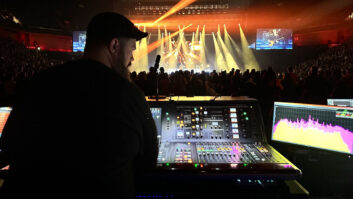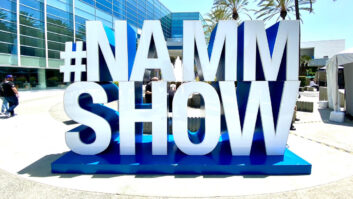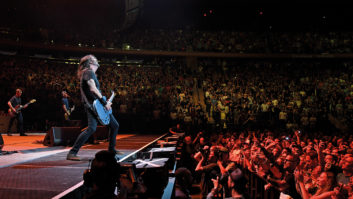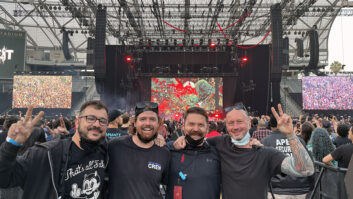
Business is booming in the live sound industry. All that pent-up energy from the Corona-pause has finally been uncorked, and music fans—worldwide, not just in the U.S.—are flocking to see live music again. There’s certainly plenty to see: “Everybody and his dog wants to tour right now,” says Paul Owen, president of DCR Nashville, an AVL solutions provider.
The economic imperative to get back on the road is strong. Income all but disappeared during the months-long industry shutdown; that is, unless your production company also does system integration, a market where business increased during the hiatus. Government assistance, when it finally came, was often too little, too late. Production, trucking and bus companies were forced to lay off workers, if they hadn’t already quit. Many music venues shuttered.
Bands have been keen to get back to doing what they do best, and, to be fair, some artists did return to the road in early 2021 as lockdown restrictions eased. Indeed, during the past 18 months, people have worked out how to put on a show and keep everyone as safe as possible. But the virus has not gone away. And like long Covid, which lingers in the body, the economic effects of the pandemic will be with us for some time to come.
This time last year, Spectrum Sound had the foresight to sell off some older live sound gear and upgrade its inventory. “It’s still been really tough for us,” says Brooke Porter, the Nashville-based company’s accounting and project specialist. “A lot of audio manufacturers are backordered; lead times are up to a year, in some cases. Another problem is that there are no solid ship dates.”
SUPPLY CHAIN EFFECT
In-ear monitors and chip sets are especially in short supply, she says. “The shortage of one component affects the entire system; it’s challenging to increase P.A. inventory when you can get speakers but you can’t get amplifiers.” On the plus side, she says, “We have started working with new manufacturers and different product lines.”
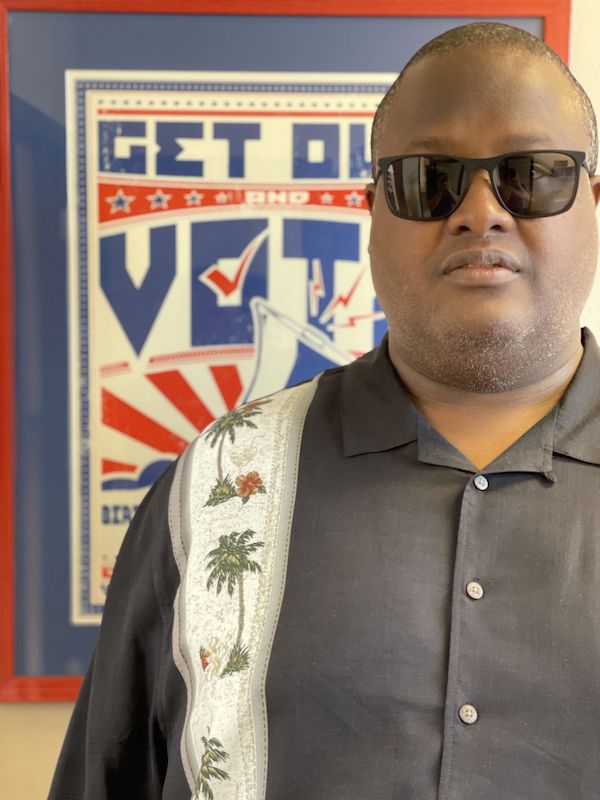
Sean Sturge, who handles worldwide sales for Clair Global company Eighth Day Sound, reports that they took delivery of a dozen DiGiCo desks during the past year. But now, he says, “You place an order with Shure, and because of the chip shortage, you’re not getting a delivery until 2023. If anyone wants to sell some PSM 1000s, call Clair Brothers: We’re buying!”
Still, Sturge adds, “We’ve had only one client walk away because we didn’t have exactly what they wanted. Every other client has worked with us and understands that there’s a shortage of equipment.”
DCR Nashville got its purchase orders in early and has taken delivery of new Avid consoles and various items of infrastructure, Owen says: “We were supposed to take delivery of some of it in March, and we’re just seeing some of it come through the door now. Right now, Avid is not delivering until at least October, so we’ve ended up doing multiple purchase orders that overlap; whichever one hits first is the one we pay.”
Sometimes orders are incomplete, Owen adds. For example, he placed an order for $5,000 worth of microphone stands. The bases and boom arms arrived, but the telescopic uprights are backordered, rendering them unusable.
“It becomes incredibly difficult to plan and acquire all the new gear needed,” Porter confirms, what with supply chain issues, the number of simultaneous tours and the uptick in demand for B rigs, due to longer tours or bigger jumps between shows. Spectrum’s client list includes the likes of Thomas Rhett, Jason Aldean, Kelsea Ballerini and Old Dominion, all of whom are currently on tour, as is George Strait, who is selling out stadiums nationwide.
“And OneRepublic are about to go out,” Porter says. “We have more tours active at one time than we had in pre-pandemic years. It’s possible they’re making up the dates that were missed during the pandemic, but it’s also possible that this is the new normal for touring.”
Sturge is not surprised that touring has returned full force. “I did not anticipate it would come back 200 percent,” he admits. “I take my hat off to Live Nation, AEG and all the independent promoters who are taking the risk and putting tours out there that keep the vendors working.”
With four locations worldwide, Eighth Day might previously have moved inventory around to cover any gear shortfalls, Sturge says, but even Clair’s considerable global stockpile is of little help when the warehouses are largely empty. “The problem we’re encountering right now is that the European market is just as busy as the U.S. They’re usually not busy at the same time. The Australians are even working,” he says. “All the markets are trying to do shows to recover from the last two years of nothing.”
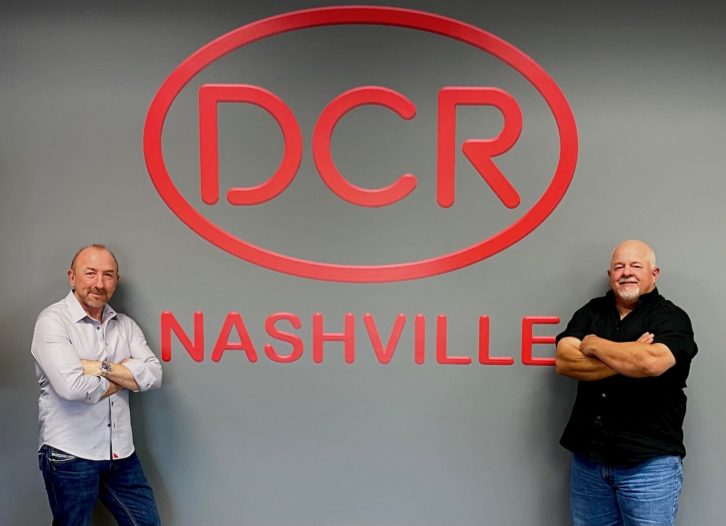
The turnaround from famine to feast happened quickly, according to Owen at DCR, where the client roster includes Brantley Gilbert, Trace Adkins, Kane Brown, Ann Wilson, Tyler Farr and Tracy Lawrence. “It went from a marathon to a sprint,” he says. “Now, I can’t keep equipment in the shop long enough. People say, ‘I’ll take whatever you’ve got.’ Whoever’s got the gear gets the gig; it’s not about the price.”
Owen, too, foresaw the current live sound surge. “I knew the emphasis was predominantly going to be audio control packages. Many tours are not carrying P.A. because it’s another truck and another guy, and most theaters or amphitheaters have P.A. installed. We just concentrated on building a lot of audio control packages and a lot of lighting control packages, and those are what have been flying out the door.”
COVID’S LONG TAIL
As of early June, the U.S., on its fourth-biggest surge to-date, was averaging more than 100,000 new Covid-19 infections daily, with hospitalizations slowly ticking up in their wake. The infection rate going into the Memorial Day weekend was at least five times higher than the same point in 2021, according to The New York Times.
It’s no surprise, then, that tours are still being disrupted as one member or another of the touring party tests positive for the latest Omicron variant. Examples abound, as recently reported in Billboard. At the start of the year, the Strokes canceled two festival headlining slots. Pearl Jam, Eric Clapton and Willie Nelson have all canceled shows. Brandi Carlile pulled out of Stagecoach. Avril Lavigne has postponed some shows until 2023. J Balvin postponed his entire 25-date tour. And the day before we went to press, Mick Jagger announced that he had tested positive and the Stones’ Amsterdam show would be postponed.
To what extent Covid might impact a live sound crew depends on myriad factors, including the safety protocols set by the artist’s management, the county or state, or the venues themselves. For production companies, however, the staff shortages stemming from the initial industry closure can cause a headache when an employee tests positive.
“The problem is that we have lost 40 percent of the industry crew. We’re working with a reduced labor force, and Covid is still affecting tours,” says Eighth Day’s Sturge.
Live Sound Reawakens As U.S. Tours Return
The current CDC advice is for anyone testing positive to quarantine for five days pending a negative result. “Some tours want a replacement the next day,” Sturge says. “Some tours are okay not replacing that person until they get well for five days.”
In May, he reports, “We did 13 crew changes because of Covid in one week. We feel like we need five people just sitting around, waiting by the phone, for when someone tests positive.” The scarcity of skilled personnel has had a knock-on effect. “We walked away from festivals for the 2022 season for one simple reason—staffing,” Sturge reveals. “We don’t have the resources to send 12 guys to do a four-day festival when we could split up those 12 guys, four to a tour.”
DCR has not run into any problems due to positive testing, Owen reports, noting that control packages require fewer crew. The bigger problem is the industry-wide staff shortage. “Because they’re offering such good rates for these guys to go out on the road, regardless of how much experience they have, they’re not going to come into the shop and work for $18 an hour,” Owen says. “Especially with these gas prices”—which hit an average of $4.82 a gallon in early June—”and having to drive into work.”

“There are fewer techs in the live sound industry than there were pre-pandemic,” Spectrum Sound’s Porter agrees. “This means we’re focusing more of our efforts on hiring and staffing. It’s also important to us that we are conscientious about not overworking our techs and making sure that they have some time at home to relax or be with their families.”
Anticipating future staffing needs, she continues, “We partner with some local universities and audio engineering schools and have hired many students and recent graduates from those programs. It’s important that we provide training, guidance and mentorship so that they can eventually grow and move into more senior roles.”
More immediately, she says, “The owner of our company, who is 67, has been out on a few shows of his own this year. That’s his solution to staffing—pitch in with a helping hand.”
That attitude is familiar to anyone who has ever worked in live sound — but this is not your father’s sound business, Owen believes, not anymore: “It’s not the business I got into 40-odd years ago, and it’s definitely not the business I’m going to leave. I think there’s a lot of correction going on—and I think the dust will settle after this year.”

